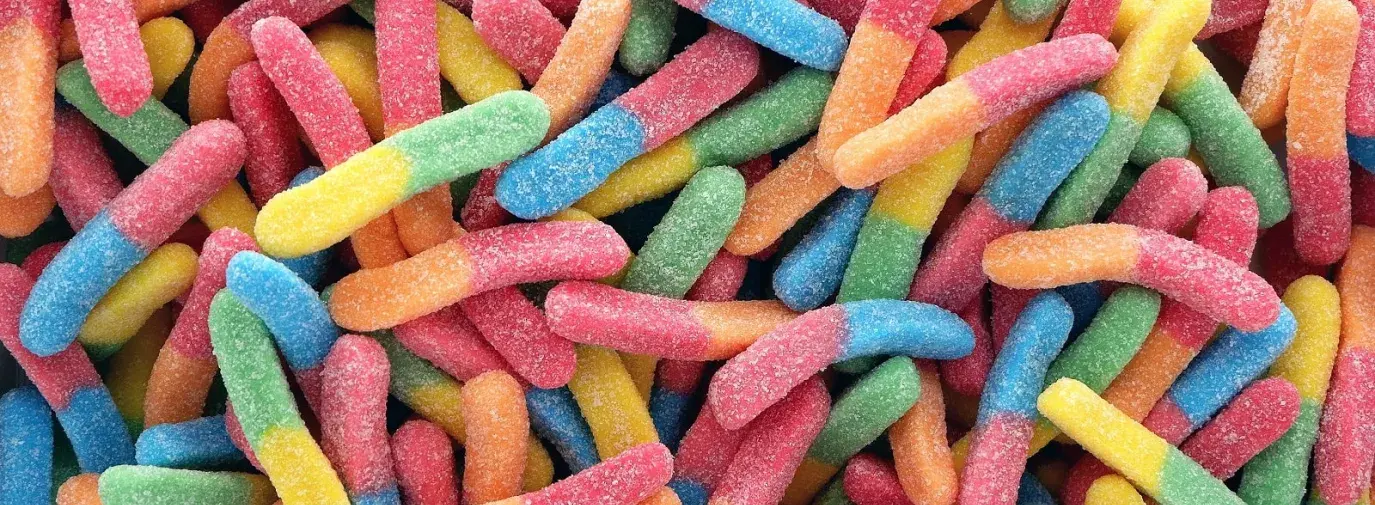
Sustainability has always been an important value at Food For Thought, the gourmet organic food company Timothy Young started over ten years ago. All of his products—from strawberry preserves to corn muffin mix—include certified organic fruits and vegetables. Social justice has also been a strong part of his mission, so when he saw the opportunity to sweeten his preserves with Fair Trade Certified™ sugar, he leapt at it. 
“Choosing Fair Trade, organic sugar was an easy decision for us,” says Young. “The fruit we use comes from local farmers with whom we have direct relationships, so we know that both people and the planet are being treated fairly. Now we can also guarantee that the sugar we use is providing a fair wage to small-scale farmers around the world.”
Young uses Fair Trade Certified sugar to make his unique preserves, and you can use it in our own kitchen. Fair Trade sugar, which made its US debut in 2005, is now widely available to consumers in grocery stores and online—giving people the opportunity to buy white, brown, and powdered sugar that benefits both people and the planet.
Conventional Sugar: Not So Sweet
About 85 percent of the sugar sold in the US is grown domestically, but much of that farming is controlled by large corporations under conditions that harm the environment.
About half of the sugarcane in the US comes from southern Florida, where the sugarcane industry has been encroaching on the Florida Everglades for nearly a century. More than a billion gallons of water are diverted away from the Everglades to the sugarcane fields every day, according to the Everglades Trust Foundation. In addition, phosphorus run-offs from the sugar industry have devastated the Everglades’ ecosystem, and the sugar lobby (called “Big Sugar” by critics) has worked aggressively to avoid responsibility for repairing the damage.
The sugar lobby has consistently worked to postpone the deadlines for cleaning up contaminated water and has shifted the burden of paying for clean-up to tax payers, says Joe Browder, board member of the nonprofit Friends of the Everglades.
“Sugar controls the way water flows through South Florida, both environmentally and economically,” says Browder. “It is depriving the protected Everglades of water in the dry season, and dumping excess water into all the Everglades and south Florida coastal communities in the wet season. When sugar growers need to keep their land dry, they treat the rest of south Florida like a toilet. And those issues are no closer to being resolved in favor of the Everglades.”
US trade policies protect the jobs of domestic sugar farmers, but they result in sugar prices in the US that are usually about three times the price of sugar on the world market, damaging farmers around the world who cannot compete in an unfair US sugar market. High sugar costs also affect manufacturers of food products and beverages in the US, and their customers; a 2003 report by the Organization for Economic Cooperation and Development (OECD) estimates that the US sugar program costs consumers roughly $1.5 billion dollars a year.
And these protectionist policies don’t necessarily help small farmers. The OECD estimates that over 40 percent of US policy benefits go to just 1 percent of all sugar producers.
Sugarcane farming abroad does not have a better record. The World Wildlife Fund estimates that, because of habitat destruction, intensive water use, heavy use of chemicals, and polluted wastewater, sugar may be responsible for more biodiversity loss than any other crop worldwide.
And the harvesting of sugar has often been plagued with labor problems. According to a 2018 report by the US Department of Labor, child labor and forced labor are used in many sugar producing countries, including reports of child labor on sugar plantations in Bolivia, Brazil, India, Kenya, Mexico, and the Philippines.
Better Options: Fair Trade Sugar
If you want a sweetener that is easy on the environment and supports your local economy, you can look for locally grown organic maple syrup or honey. But if it’s sugar you need, Fair Trade Certified™ sugar is now increasingly available in stores throughout the US and online.
Through Fair Trade, farmers are paid a guaranteed price for their products—a price that covers their living costs while also helping to improve their communities. The Fair Trade price also includes a “social premium,” which is used for social projects decided upon democratically by the farmers, and an additional premium is paid for sugarcane that is certified organic.
“Fair Trade certification ensures that sugarcane farmers receive a fair price for their harvest, helping farmers around the world put food on their tables,” says Anthony Marek, public relations director at TransFair USA, which certifies Fair Trade sugar for sale in the US. “It also creates direct trade links between farmers and buyers, and provides access to affordable credit. And Fair Trade premiums allow farmers to invest in and improve their communities.”
Sugarcane farmers in the Chikwawa district of Malawi have put the Fair Trade premiums to life-saving use. Before the Kasinthula Cane Growers sugar cooperative was certified by the Fairtrade Labelling Organisations International in 2002, people in the farmers’ villages were beset by waterborne illnesses like bilharzias, cholera, and dysentery. The cooperative’s first project using the Fair Trade premiums was the drilling of two wells, which now provide clean drinking water to two villages and help prevent these diseases.
The cooperative has also used its Fair Trade premiums to bring electricity to the village of Chinangwa, and members are currently at work building a school.
In addition to guaranteeing farmers a fair price, Fair Trade certification also helps farmers use environmentally sustainable farming practices. On Fair Trade farms, producers must adhere to strict standards regarding the use and handling of pesticides; the protection of natural waters, virgin forest, and other ecosystems of high ecological value; and the management of erosion and waste, according to TransFair USA.
And the premiums that come with Fair Trade certification often enable farmers to switch to organic farming—90 percent of the Fair Trade Certified™ sugar in the US is also certified organic.
What You Can Do
Go Fair Trade for your sweet needs by purchasing Fair Trade Certified™ sugar. If your local grocer doesn’t have it, ask that they carry it and order it online until it’s available locally.
Learn more about Fair Trade and take action to promote it by joining Green America’s Fair Trade Alliance and by requesting a copy of our new Guide to Fair Trade.







